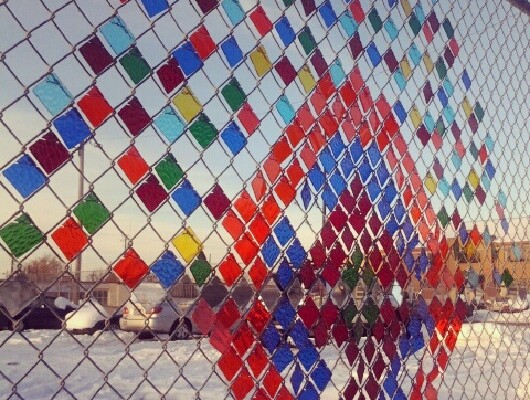Established in 2007 and supported by the Malcolm Robertson Foundation, the Overland Judith Wright Poetry Prize seeks outstanding poetry from new writers.
This year’s judges – poets Alison Whittaker, Nguyễn Tiên Hoàng and Toby Fitch (who is also Overland’s poetry editor) – whittled 650 entries down to a shortlist of just nine outstanding works, and then narrowed this list further, to the poems that placed first, second and third.
‘The three winning poems, as with those on our shortlist, are vastly different in their aesthetics,’ note the judges, ‘but what unites them is a shared ethics of seeing the world and its sociopolitical constructs anew, and a searching for patterns that might make sense of what’s impossible to resolve – our shared, though disparate, existence in the Anthropocene.’
Overland, the judges and the Malcolm Robertson Foundation are thrilled to announce the results of the 2018 Judith Wright Poetry Prize:
First place ($6000)
‘Acacia Land’ – Julie Jedda Janson
 ‘Acacia Land’ is set in Ngiyampaa country in the outback, where a police car cruises on a quiet as death night. It tells us about meeting a ghost in a goat ravaged landscape near the outback town of Wilga, a tidy town.
‘Acacia Land’ is set in Ngiyampaa country in the outback, where a police car cruises on a quiet as death night. It tells us about meeting a ghost in a goat ravaged landscape near the outback town of Wilga, a tidy town.
Julie Jedda Janson is a Burruberongal woman of Darug nation. She is a teacher, artist, playwright and poet. In 2016, she was the recipient of the Oodgeroo Noonuccal Poetry Prize. Her published works include The Crocodile Hotel (Cyclops Press, 2015) and The Light Horse Ghost (Nibago, Booktopia, 2018).
Second place ($2000)
‘nadelstich’ – Joel Scott
 Looking at graphic works by a friend, thinking about planes of vision and depth in time, slipping into memories of childhood, of my mother, questioning the justification of art without just inversions.
Looking at graphic works by a friend, thinking about planes of vision and depth in time, slipping into memories of childhood, of my mother, questioning the justification of art without just inversions.
Joel Scott is a poet and translator from Sydney who now lives in Berlin. He has published the chapbooks DIARY FARM (Vagabond Press, 2014) and BILDVERBOT (cross nougat press, 2017). His translation of volume two of Peter Weiss’s The Aesthetics of Resistance will be published by Duke University Press in 2020.
Third place ($1000)
‘Surfing at Blackfellas’ – Ross Belton
 ‘Surfing at Blackfellas’ is inspired by a surf break encountered during a journey around the southern Australian coast and the code of silence that hangs over so much of our colonial history.
‘Surfing at Blackfellas’ is inspired by a surf break encountered during a journey around the southern Australian coast and the code of silence that hangs over so much of our colonial history.
Ross Belton grew up in Esperance on the Western Australian south coast, graduated in environmental science and has worked in disability facilitation, as a zookeeper, political hack and public servant. He lives with his son Jacky Blue and Jo the Cripster in Fremantle where he writes recipes for climate change lamingtons.
You can read the full judges’ report, along with ‘Acacia Land’, ‘nadelstich’ and ‘Surfing at Blackfellas’ in Overland 234, which will be out in late March.
 The Judith Wright Poetry Prize is supported by the Malcolm Robertson Foundation
The Judith Wright Poetry Prize is supported by the Malcolm Robertson Foundation



